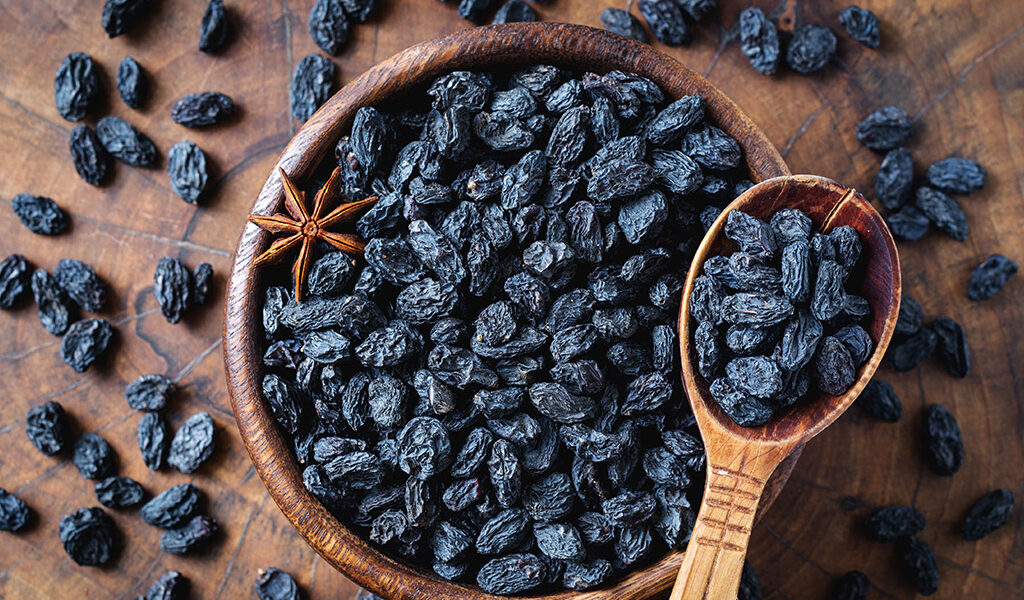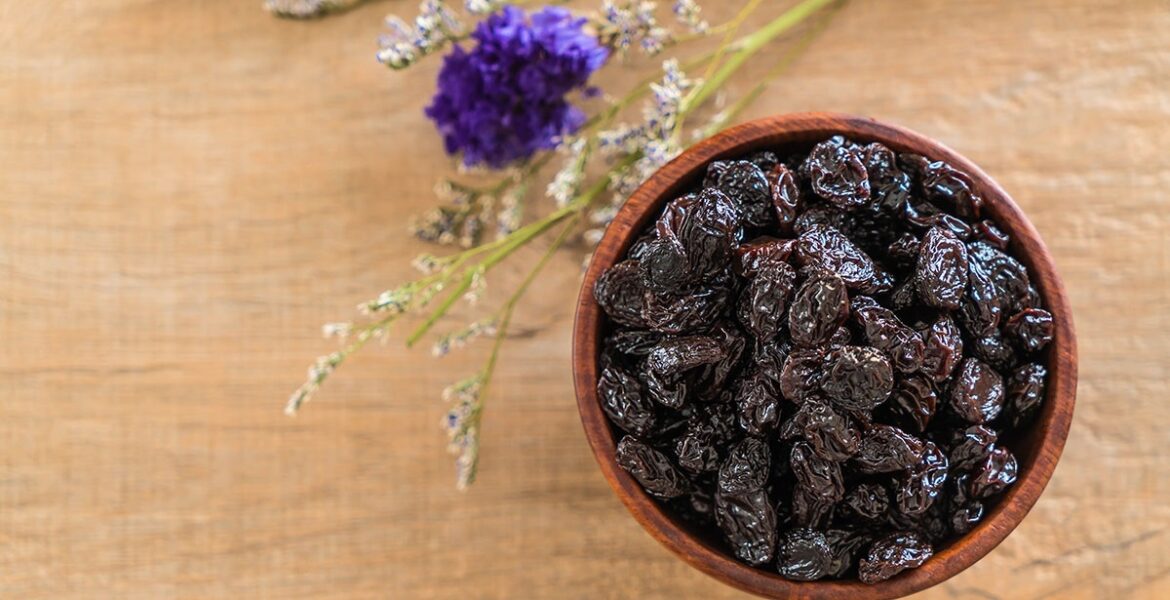The Corinthian raisin, also known as the Corinth raisin or the Zantre currant, is rich in plant fibres, sugars and micronutrients of particular value to the human body. Part of the raisin's fibre concerns the so-called fructans, prebiotics with a positive effect on many health indicators.
A prebiotic is defined as any undigested food ingredient that beneficially affects the flora of the large intestine, by selectively promoting the growth and/or activity of one or a group of bacteria, which have been proven to improve the health of the organism.
Imagine that every time you consume a raisin, you are feeding the good bacteria in your gut.

For one kilogram of raisins, approximately three kilograms of grapes are required, which are subject to drying, mainly in the sun and without the use of additives.
Its high content of sugars and, therefore, in direct form of energy is the main reason why raisins are identified with warming food, a necessary companion of every mountaineer.
In the past, this characteristic was the focus of an advertising campaign that identified the raisin as an alternative to the school snack.
The dominant nutrient in currants is definitely potassium, while the most recent analyses indicate that its content in antioxidants (vanillic acid, gallic acid, caffeic acid, quercetin, anthocyanins, etc.) and water-soluble vitamins is remarkable. B1, B2, B6, C, although it is a dried fruit.

Two tablespoons of raisin is equivalent to one micro-portion of fruit and as part of the Mediterranean diet we should consume a variety of three micro-portions of fruit per day (one micro-portion of fruit is equal to an apple, half a pear, a small orange, etc.).
This is stated by nutritionists Konstantinos Xenos and Asteria Stamatakis in their book "Meet the Greek super foods".
Beneficial benefits – Impressive scientific evidence
A study by scientists of Harokopio University that investigated the effect of a special extract of currants on human colon cancer cells, concluded that the extract had significant antioxidant, anti-inflammatory and cytoprotective effects.
The high content of currants in strong antioxidants, which the human body can absorb and utilise (their scientific name is bioavailable), seems to be the main cause of these positive effects.
After all, the antioxidant activity of the currant has been certified by analyzes by Greek scientists in the past.
*More on GCT: Will Greek yoghurt be the next great ‘Superfood’?
The effect of a special currant extract has been investigated in the laboratory and on human gastric cancer cells (AGS) with similar excellent results.
Another study in people with type 2 diabetes showed that currants (which replaced two small servings of other fruits in the diet) helped to regulate the diastolic (small) blood pressure of these people without disturbing fasting sugar levels, as we would expect due to the increased sugars contained in the raisin.
It is therefore considered safe for this particular group of patients.
Finally, it is worth mentioning that very recent data highlight currants as a weapon against non-alcoholic fatty liver disease, a condition popularly referred to as "fatty liver".
So, how can we consume Corinthian raisins? They can be included as part of our daily diet in a variety of ways:
- As a snack: You can eat them in combination with unsalted, raw nuts or with an oat bar. Another good combination is to consume them with a piece of dark chocolate.
- In salads: An excellent solution is to add them to your green salads along with various vegetables and make a dressing from balsamic and olive oil.
- Breakfast: Add raisins to the muesli you have with your milk or yogurt.
- In food: Corinthian raisins go perfectly in potato salads, rice dishes or even pies!
- In sweets: You can add them to cakes, muffins, pancakes, or creams, etc. Raisins as a natural sweetener can easily replace sugar in many of the sweets you make.
READ MORE: Chickpeas: How many different ways can we cook them?

